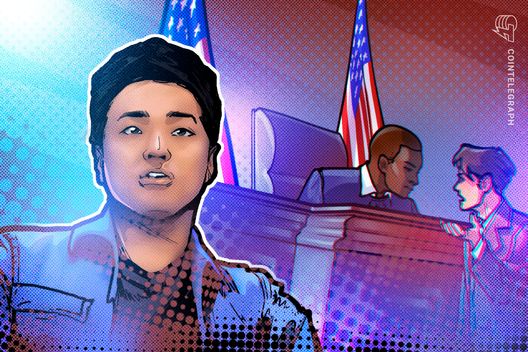

The legal landscape surrounding cryptocurrency in the United States is evolving, and these changes could have significant implications for ongoing criminal cases, including that of Do Kwon, the co-founder of Terraform Labs. Kwon faces serious charges related to the collapse of the TerraUSD stablecoin and Luna token, a debacle that wiped out an estimated $40 billion from the crypto market.
Recent developments in both legislation and the Department of Justice's (DOJ) approach to crypto enforcement are introducing new complexities to the case. A key point of interest is the potential impact of the "GENIUS Act," as highlighted during a recent status conference presided over by Judge Paul Engelmayer in the Southern District of New York. This act, along with other proposed federal legislation, aims to clarify the classification of certain crypto assets, particularly stablecoins. If stablecoins are legally defined as payment-related assets rather than securities, it could directly affect the securities fraud charges against Kwon.
The DOJ's stance on crypto enforcement is also shifting. A recent memo indicated a move away from pursuing criminal charges for regulatory violations of securities or commodities laws, unless there is evidence of willful misconduct or failure to comply with licensing and registration requirements. This change in approach raises questions about the basis for the charges against Kwon, particularly those related to fraud and conspiracy.
Despite these shifts, prosecutors have stated that they have "no plans" to alter the charges against Do Kwon at this time. They maintain that the charges are fundamentally rooted in fraud and conspiracy to commit fraud, which are established criminal statutes that are not necessarily dependent on the classification of cryptocurrencies as securities or commodities. The prosecution will likely focus on demonstrating that Kwon made false and misleading claims regarding the stability and efficacy of Terraform's cryptocurrency stablecoin protocol, its use of blockchain technology, and its development of functioning and reliable financial technologies
However, Kwon's defense team may leverage these changes to challenge the charges. Kwon's attorney suggested that the DOJ memo could lead to pre-trial motions, particularly concerning whether the cryptocurrencies involved in the case should be classified as securities. If the defense can successfully argue that the tokens in question are not securities, it could weaken the prosecution's case on the securities fraud charges.
It's important to note that a separate civil case brought by the Securities and Exchange Commission (SEC) against Kwon and Terraform Labs resulted in a ruling that the tokens involved were, in fact, securities. However, the judge in Kwon's criminal case has indicated that he will consider any relevant rulings or findings from the SEC case, but will make his own determination based on the specific evidence and arguments presented in the criminal trial.
The outcome of Do Kwon's case could have far-reaching consequences for the cryptocurrency industry. It could set a precedent for future fraud charges in the crypto space, clarifying the boundaries of acceptable conduct and the potential consequences of crossing those lines. The case also highlights the need for clear and consistent regulations for the crypto industry, as the lack of regulatory clarity can create uncertainty and potentially hinder innovation.
The trial has been delayed until February 17, 2026, to allow both sides to prepare and address any pre-trial motions. The coming months will be critical as the legal teams navigate the evolving regulatory landscape and prepare their arguments. The final verdict will not only determine Do Kwon's fate but also provide valuable insights into how U.S. laws apply to the rapidly evolving world of cryptocurrency.